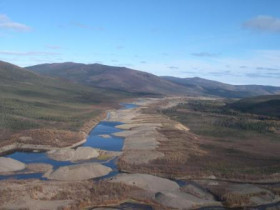The federal government’s proposed changes to environmental rules for resource projects could limit Ottawa’s oversight, but probably won’t shorten approval times, according to a law firm’s analysis.
The proposed amendments address concerns raised by Canada’s Supreme Court in October. It ruled the Impact Assessment Act is unconstitutional because the federal government was overstepping its jurisdiction into provincial areas. The Liberal government’s budget speech in mid-April said the suggested modifications were coming, but it wasn’t immediately clear how long it would take to enact them.
The proposals likely will be adjusted through a public consultation process, lawyers for Toronto-headquartered law firm Osler said in a report this month. The essential procedures, timelines and authorities in the act would remain unchanged by the amendments, said the firm, which represented the Alberta Business Council as an intervenor in the Supreme Court case. The proposals do contain provisions for retroactive application to projects already being assessed under the act, it said.
“It is uncertain whether they will result in meaningful changes to how the current act has been administered,” the firm said. “The amendments also fail to address the criticisms from project proponents that the current act deters investment in new projects because its applicability, timelines and decision-making powers are uncertain and unpredictable.”
Veteran entrepreneur Pierre Lasonde said there should be only one environmental assessment under provincial jurisdiction with defined objectives and a set timetable.
“The new revised, modified rules are more of the same if not even more ambiguous, open-ended and fully discretionary,” Lassonde told The Northern Miner by email. “These have been written by peoples who don’t know a thing about natural resource development and how difficult and costly it is.”
One assessment
The amendments allow for provinces to substitute their assessments for a federal process as long as it includes federal aspects and concerns. This should place more emphasis on locals such as provincial and Indigenous governments, but will depend on negotiating between the jurisdictions, Osler said. Ottawa-based resources industry critic MiningWatch Canada objected to the concept.
“Beyond the uncertainty created by a patchwork of inconsistent provincial requirements, the provinces are simply not equipped, or not willing, to take environmental assessment seriously,” Jamie Kneen, a program leader at MiningWatch Canada, said in a release. “The role of the federal government is crucial in protecting the public interest.”
The Ottawa-based Canadian Mining Association, the Canadian Mining Institute in Montreal and the Vancouver-based Association for Mineral Exploration didn’t immediately reply to emails seeking comment about the federal proposals. The Prospectors and Developers Association of Canada said it couldn’t respond on Monday.
Greenhouse gases
Osler said the act would still involve federal jurisdiction for projects that cause water pollution across provincial and international borders, but not GHGs under the proposed amendments. But this potential change on GHGs wouldn’t apply to any work on federal land or federal work, it said.
“Importantly, this definition would no longer apply to extra-provincial effects of greenhouse gas emissions or other air pollution, and would no longer permit decision-makers to trigger assessments or impose condition on projects based solely on a project’s emissions,” the firm said.
Environmentalists criticized the proposals for allowing too many greenhouse gas (GHG) emissions especially from oil and gas projects, such as oilsands operations in Alberta and proposed mining projects in Ontario’s north. Fourteen environmental groups including Ecojustice, West Coast Environmental Law and MiningWatch Canada wrote a letter to the federal cabinet this month.
“Some projects’ climate effects are not otherwise regulated, such as projects in the Ring of Fire area that could disturb peatlands that store more carbon than all of Canada’s forests, releasing dangerous amounts of methane and carbon dioxide,” the groups said in the letter. “Federal oversight of the significant GHG emissions of major projects is critical.”
Altered definitions
The amendments would replace the existing definition of “effects within federal jurisdiction” by adding the word adverse to it. The new definition would apply to “non-negligible adverse” effects or changes, rather than positive or negative changes or impacts regardless of materiality, the law firm said. The language in the proposals is ambiguous enough to create uncertainty when a project would trigger a federal assessment or what factors would influence decisions, the firm said.
Companies with a project may be able to avoid a federal impact assessment if they mitigate potential adverse effects that are under federal jurisdiction, Osler said. For example, altering a project so it doesn’t harm a fish habitat might prevent the Impact Assessment Agency from ordering an assessment, it said.
The proposals also get rid of a requirement for a proponent to show detailed project descriptions following the planning stage, unless the agency says it’s needed for review. It streamlines the process but also adds uncertainty, Osler said.
Assessment alternatives
The agency would consider if another means could serve instead of an assessment to address potential adverse effects in federal jurisdiction, according to the suggested amendments. The other means could be run by separate federal authorities and agencies as well as Indigenous and provincial governments. But the decision to forego an assessment would depend on how the act was implemented, the lawyers said.
The proposals would change a final decision on a project to a two-stage process. The Minister of the Environment (or a political appointee called the Governor in Council if it’s a panel doing the review or a referral from the minister) must first decide how significant any adverse impacts within federal jurisdiction are likely to be.
Then the minister or their surrogate must rule if the adverse impacts are justified in the public interest. The language would be changed to focus on the effects of a project rather than assessment of the project itself, Osler said.
“It remains debatable whether these revisions differ meaningfully in their practical and legal effect from the single, highly politicized public interest determination under the current legislation,” the law firm said. “We expect the federal government will continue to engage in consultation on the proposed amendments.”
Source: MINING.COM – Read More










